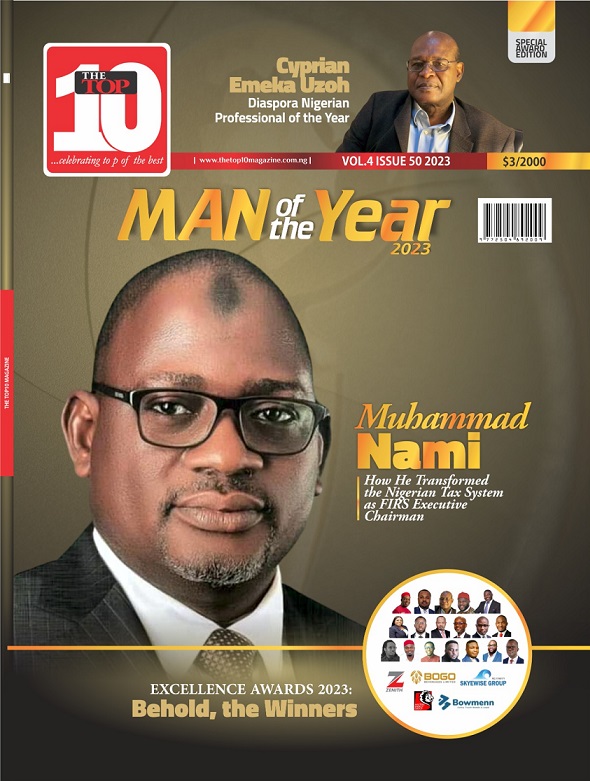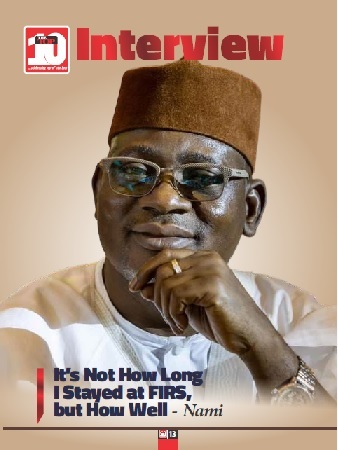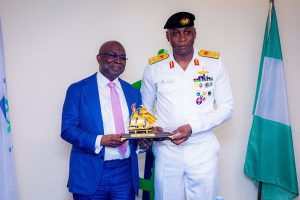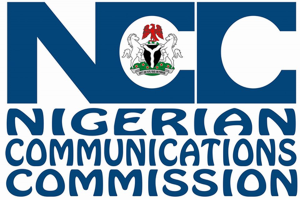INTERVIEW
When he arrived at the Federal Inland Revenue Service (FIRS) in 2019 as Executive Chairman, Mr. Muhammad Nami introduced a cocktail of reforms in critical areas of the agency’s activities. These served as a springboard that propelled Nigeria’s apex tax body to new, multi-record-setting heights in tax revenue generation. As the reforms matured and seemed poised to take FIRS to even higher levels of performance, Nami was asked to proceed on pre-retirement leave with about three months left to the end the first of his four-year renewable tenure.
In this interview with The Top10 Magazine, Nami, the Magazine’s Man of the Year 2023 and Nigeria’s tax administrator extra-ordinaire, tells the story of his life, education, career, stint at FIRS, as well as his post-retirement plans.

Q: You had an impressive career background before your appointment as the Executive Chairman of Federal Inland Revenue Service (FIRS). Can you share that experience with us?
A: Before I came to the FIRS, I had built a career in the Tax, Accounting and Management professions which spanned over 27 years. I have almost three decades of practical working experience in Auditing, Tax Management and Advisory and Management services to clients in the banking, manufacturing, services and public sectors as well as Non-Profit Organisations. I have also continuously rendered outsourced services to clients in trading, service and manufacturing sectors of the nation’s economy.

I attended the Bayero University, Kano and the Ahmadu Bello University, Zaria where I obtained a Bachelor’s Degree in Sociology (1991) and a Masters of Business degree (2004) respectively. I am a Fellow of the Chartered Institute of Taxation of Nigeria, Associate Member of Nigeria Institute of Management and the Association of National Accountants of Nigeria; I am also an associate member of the Institute of Chartered Accountants of Nigeria and Associate of the Chartered Institute of Stockbrokers.
I started my career with the Pannell, Kerr, Forster (PKF), an international auditing and advisory firm operating in over 100 countries in the world in 1993 and rose to the position of a Senior Consultant in charge of Tax management and advisory services. Before my assumption of office at the FIRS, I was the managing consultant of Manam Professional Services (Chartered Tax Practitioners and Business Advisers) with offices in Kaduna, Abuja and Niger State. I have served on the Board of many companies’ as well as serving as a member of Statutory Board Audit Committees. I was appointed a member of the Presidential Committee on Audit of Recovered Stolen Assets in November 2017 by President Buhari.
Q: What aspects of your career prepared you for the soaring success you recorded in FIRS during your time there?
A: The values and principles I maintained were the most instrumental character to what you have defined as a soaring success. Those principles were hardwork, honesty, self-control, patience, perseverance and team-work. I also believe in seeing the best in people. The combinations of these were what kept me through the years before I joined the FIRS and while I was there. I think these principles are timeless and should be imbibed by all. They have been proven to be useful to all those who have abided by them.
Also, my training and career in tax, accounting and management helped me deal with all manners of people and businesses. It gave me an insight into what tax practice is all about. It also enabled me to understand the challenges businesses were facing when it comes to tax matters. I would say that, my27 years of experience gave me a clear picture of the problems I needed to tackle to transform our tax administration, and also how I should go about tackling those challenges. Before I was appointed ECFIRS, I applied for Tax Clearance Certificates (TCC) for some of my clients in March, 2019. It was not until I was about to resume as Executive Chairman, did those TCCs get issued. That is a period of about nine months, waiting for a TCC to be issued.
What is the case today? A TCC is issued to you via our TaxPro MAX with the click of a button as long as you do not have any outstanding liabilities.

My experience on the outside gave me a profound view of the issues on the inside that needed to be dealt with. I also had a strong understanding of some of the loopholes that tax consultants were known to exploit when dealing with the tax authority. We thus swung into action to block those loopholes—whether enabled by the bureaucratic system, or unwittingly permitted by law.
Another issue that my experience taught me was the culture at the FIRS. My engagement with tax officers as a consultant showed me that there was need for a cultural realignment in the Service. Staff needed to be better tax officers. We also needed to give them back their jobs that had been taken from them and handed to tax consultants.
Q: Please clarify this minor confusion concerning your arrival at FIRS. Some records say you were appointed in December 2019, while others say you assumed duties in 2020.
A: The former President, Muhammadu Buhari appointed me the Executive Chairman of the FIRS on the 9th December, 2019 and I was confirmed by the Senate on the 18th December, 2019. I assumed duty on the 19th December, 2019.
Q: How did it feel like assuming duty at FIRS in the heat of the COVID-19 pandemic? How did you manage to achieve your target for 2020 amid the pandemic?
A: It was not an easy one. It was like I was being set up to fail. [Laughs]. I can remember how exhausted I felt at the commencement of the lockdown. I asked myself, what did we need to do to ensure that we did not fail the nation. I knew that the task was bigger than me. We were in service to the nation and we knew that we had to do everything to succeed.
From the beginning of the year 2020, the impact of COVID-19 had started manifesting gradually on multinational corporations, especially in the oil sector. The price of crude oil at the international market started falling. It fell to as low as $29 per barrel. It is worthy of note that oil prices eventually fell below $5 per barrel by April, 2020. Part of FIRS’ first response was to pay attention to some hitherto uncharted revenue sources such as Stamp Duties, Capital Gains Tax and Transfer Pricing Regulations. In March 2020, the FIRS unveiled a new electronic and automated platform for taxpayers to file transfer pricing declaration and disclosures. The platform is to enable seamless transfer pricing reporting.
You might recall that between March and April 2020, the impact of COVID-19 had increased tremendously in Nigeria. Part of the first response by the Nigerian Government to curtail the spread of the virus was to completely lockdown Abuja, the Federal Capital Territory, Lagos and Ogun States. Other states across the country implemented similar measures to check the spread of the virus. There was also restriction of interstate movement except for essential services. The implication of this was that the economy was virtually shut down. Despite the lockdown, our approach was to continuously engage the FIRS Management team digitally through virtual video conferencing. This was to leave nothing to chance when the Service needed to take a decision on important management issues, affecting the operations of the FIRS.
The Service also launched a business continuity plan (BCP), and took measures to ensure the safety and well-being of staff, taxpayers, stakeholders and visitors during the pandemic.
In line with the Federal Government’s COVID-19 palliative responses, the FIRS also unveiled its own palliative measures for taxpayers.
The palliative measures included: Late Returns Penalty (LRP), which was waived for taxpayers who pay early and file later; Supporting documents could be emailed to the dedicated email addresses or submitted later to the tax offices by those who are not able to use the email facility; Remittance of VAT on or before 21st of every month was extended to the last day of the month; Taxpayers who earn their income in Naira but are required to pay their taxes in FOREX and face challenges in sourcing for FOREX to offset their liabilities, were given the option of paying in Naira at the prevailing Investors & Exporters (I & E) FOREX window rate on the day of payment, among others
Other approaches were on promoting Ease of Doing Business/Ease of Paying Taxes, rationalisation of the workforce to deploy suitable staff to appropriate positions; digitisation of the tax system and massive stakeholders’ sensitisation and collaboration.
For the first time in seven years, precisely, in February that year I ensured that the FIRS Management Retreat was held. It would hold around the same time the following year. On the springboard of the Retreat, the Service was able to gauge the pulse of FIRS staff and stakeholders on the direction the Service should move in that fiscal year; and following popular demand after a survey, the Service reviewed segmentation of taxpayers, based on turnovers. This was to address and take into consideration, the prevailing economic situation then. The segmentation we set is as follows: Large taxpayer office is from N2billion and above; Medium Taxpayer Office from N500 million and below N2 billion; Micro and Small Taxpayer Offices from N0 and below N500 million.
It was by doing all these that we were able to build a resilient tax authority that was able to meet 98% of its target even during the year of an unprecedented covid-19 pandemic.
Q: Tell us what your 4-pronged approach to tax administration at FIRS was all about.
A: When I came on board, having analysed the challenges we met on ground the management and I set for the Service, Four Cardinal Goals that would be the centre points to guide our overall reforms within the Service. What are those 4-Cardinal Goals?
1. Making FIRS a Customer-Centric Institution
2. Making FIRS a data-centric Institution
3. Improving Stakeholder Collaboration
4. Rebuilding the Institutional Framework of the Service
Rebuilding the Institutional Framework of the Service was top of the agenda when we came in. We immediately carried out an organisational restructuring. We decentralised power from a single man back to the Groups. That means, work got done faster, and reporting lines were honoured. You did not have a situation where Directors and Staff were waiting in line for the Executive Chairman to approve things as little as stationery purchase. These Groups oversaw a minimum of six Directorates that had similar or related functions. By this restructuring we were able to ensure maximum functionality of staff.
We further created an administrative system that provides effective deployment of staff with due consideration to their career paths, skills and experience. Then we focused on boosting staff capacity. Our staffs are some of the most highly skilled and trained public servants in Nigeria. We invested heavily in the training and retraining of staff in our operational areas.
We focused on improving our core values, conduct and professionalism in dealing with taxpayers. Crucially, we took the tax jobs outsourced to consultants and returned them to our staff.
Another cardinal goal was that we set out to make the FIRS a Customer-Centric Institution. It is often said in business parlance that the customer is king. This is the mantra that has guided our relationship with the taxpayer. They are not just king in theory, but king in every sense of our relations with them. We tremendously improved our engagement with taxpayers of all categories while working constantly to ensure that they are satisfied in terms of our service delivery. We set up a Contact Centre to ensure that taxpayers could reach us anytime and anywhere they were. In order to ensure that taxpayers get a good grasp of technical tax matters, we regularly issued circulars and guidelines complimenting provisions of tax laws to properly guide taxpayers on assessment, return filing and payment processes, among others.
As much as possible and in line with the relevant laws, we also tried to simplify our operational processes and procedures, which are actually paying off.
The FIRS under my leadership enhanced its relationship with taxpayers by creating an environment that clearly shows transparency and accountability in our operations, trust and confidence in our relationship, and certainty and simplicity in payment of taxes as and when due. Consequently, as a result of all these efforts, we witnessed greater improvement in voluntary compliance.
We also set out to make the FIRS a Data-Centric Institution. When I came on board, we met a Service that was largely a manually driven institution. Our goal was to fully automate both the administrative and tax processes. In June 2021 we deployed our home-grown tax administration solution, the TaxPro MAX. That was the game changer for tax administration in Nigeria. This solution, which was designed and deployed by staff of the Service provides a one-stop shop for the taxpayer to carry out registration for tax purposes, filing of tax returns, paying of taxes, issuance of e-receipts, issuance of one-click Tax Clearance Certificate and so much more.
On the other hand data is at the core of the Service’s digital transformation. Identifying and locating where the taxpayers are is key in tax administration. With a robust taxpayer database, you have all the necessary information about entities and individuals that are liable to the respective tax types. With a comprehensive taxpayer database, you can also plan your tax administration and operational processes, you can also forecast the amount of tax collectable in a given period and in a particular sector.
As part of our objectives, we set out to turn the FIRS into a data-centric institution where data is at the centre of our tax administration. Thus, we established a department called Intelligence, Strategic Data Mining and Analysis Department with the sole aim of gathering data and providing information on taxpayers. The use of technological tools to build our taxpayer database aided in no small measure our efforts in tax collection.
It may interest you to know that there is a correlation between our performance while in office and the deployment of technologies. Leveraging the available taxpayer database, the TaxPro MAX, has continued to enhance our performance tremendously. It has created a tax-friendly environment where taxpayers can carry out all their tax obligations and processes with ease.
The fourth Cardinal Goal we set for ourselves was to Improve and Leverage on Stakeholder Collaboration for improved revenue generation. In line with our Vision statement, which says, “To deliver quality service to taxpayers in partnership with other Stakeholders and make taxation the pivot of National Development”, we placed a premium on our collaboration with stakeholders in all the sectors. We set out to bring every stakeholder on board.
Also, we consistently engaged and interacted with professional bodies in the relevant sectors and tax practitioners with the aim of achieving a robust tax system. Having identified that the activities of these bodies have a lot of impact on the behaviour and response of taxpayers in areas of compliance, we decided to leave no stone unturned in forging partnerships across these bodies.
We also engaged and interacted with foreign agencies and bodies and consequently enjoyed their cooperation with us on the exchange of information and other tax obligations that arose as a result of bilateral or multilateral agreements and delegations on trending issues on international taxation, among others. Also the media: we nourished a healthy relationship with the media in a way that they have become partners for tax education and also building trust and confidence in the country’s tax system.
Q: We learned that FIRS under your leadership set many revenue collection records. What were these records and which of them are you most proud of?
A: Well, I quite agree with you that we set a lot of revenue collection records. Let me start from 2020, my first full year in office. We achieved 98% of our collection target despite the Covid-19 pandemic. We collected N4.9 trillion while we had a target of N5.07 trillion. In 2021 we achieved 101% of our target. It was the highest tax revenue collection ever achieved by the FIRS at that point. It was also the first time revenue collection in Nigeria will get to the N6 trillion mark. In that year we collected N6.405 trillion Naira, whereas our target was N6.501 trillion.
In 2022, while we did not achieve a hundred percent of our target, we did the unprecedented: we collected N10.1 trillion in tax revenue out of a N10.4 trillion target. This was a collection that signified many firsts. It is the highest tax revenue collection in a single year in Nigeria’s history; it is the first time the Service would cross the N10 trillion mark, and it was the highest amount ever collected by any revenue agency of government in Nigeria’s history.
But we didn’t stop there. As at June, 2023, which is by the middle of the year, we had collected N5.5 trillion, which by itself was 103.77% of the mid-year target. By September 2023, when I was leaving office, we had collected over N8 trillion and poised to achieve N13 trillion by the end of the year.
Importantly, we had also raised the country’s Tax-To-GDP ratio from 6% to 10% within two years of my stay in office. With our projected N13 trillion collection for 2023, we are on our way to a projected Tax-To-GDP ratio of about 14% by December 2023.
I am proud of each and every one of these as I believe it is a journey; each one was building towards the other.
Q: To what extent can you attribute these successes to internal factors, especially, your 4-pronged approach?
Like I mentioned earlier, we took the welfare of staff serious, we also restructured the Service for optimal performance, we strengthened our desk audit systems, we forged stronger collaboration with our stakeholders and crucially we made technology the backdrop of our tax collection system.
Q: What external or environmental factors assisted you in this success?
I would say on a general note we had good cooperation from the taxpayers. And this came as a result of our stakeholder engagements. The FIRS under my watch engaged stakeholders like never before. We had a webinar to discuss issues with stakeholders and taxpayers at least once every quarter. We had an open-door policy to listen and work with taxpayers.
Also, we had a measure of good support from the National Assembly as well as non-interference from the Presidency. That made our work smooth and firm.
Q: Apart from COVID-19, what other challenges did you have to contend with in your bid to fulfil your mandate at FIRS?
A: The toughest challenge I faced was the mindset of many Nigerians towards tax and its utilisation. The thinking of the average Nigerian is that taxes do not work for them and thus they do not have to pay tax. This is wrong. In every facet of their lives the taxes they pay is working for them, be it roads, be it affordable healthcare and education in public institutions, be it the trains, be it refurbished airports, be it immigration and diplomatic support, be it security, and the list goes on and on; all of these are funded by the taxes people pay. The biggest challenge we faced was to get the average Nigerian to not look at whatever hardship they may be facing but look at the prospects of what their taxes could do for them. We however made a lot of progress with tax education. It ran a largely successful campaign, but more still needs to be done.
Q: How serious is the challenge of tax evasion in tax administration in Nigeria and how did FIRS under your leadership deal with it?
A: It is serious, and it comes from the mentality of taxpayers claiming that they cannot see what their taxes are doing for them, like I said earlier. On our part, we launched a nationwide campaign on tax education. We had in fact engaged consultants to commence a massive enlightenment programme just before I left office. Also, the most efficient way we worked to curb tax evasion was to use technology and data. With data we were able to see all the economic activities being undertaken by taxpayers, so there was no place to hide. We also did a lot in terms of collaboration, and getting the professional bodies to work with us.
Q: Within the context of your vision and efforts, where did you see FIRS by the end of your tenure and how would your sudden departure affect that projection?
A: Well, by the time I was leaving office, we had collected over N8 trillion in cash from 1st January to 14th September 2023. We had also assessed, reconciled and recovered over N4 trillion outstanding tax liabilities and sequestered funds from NNPC on behalf of the Federation. I believe Mr. Zacch would do well to top up and ensure that the Service collects a reasonable sum.
Q: Did you anticipate your departure several months before the expiration of your tenure, considering the level of performance of the agency at the time?
A: When I was appointed into office by the former President, Muhammadu Buhari, his team and I met for a briefing and they told me that whatever achievements we needed to make while in office, we should do so within the first four years as they could not guarantee me another four years. And I ran with this mentality, to work everyday as if it were my last.
It is within the discretion of the President to hire and fire, so I would say that I anticipated that I could be removed at any point in time; but what matters to me is not how long I stay in office, but how well!
Q: After FIRS, what next?
A: I intend to do a lot of resting and spending time with my family who have not had my presence as much as they should have. The period I spent in office took me away from them as I was always busy or travelling. I am happy to be with them and spend quality time as they grow up. I will also look at going back to my private practice and contributing my quota to national development in whatever capacity I can.
Q: Is there any information you would want to get through to the public through this medium that you have not given yet?
A: Pay your taxes. Good roads, good hospitals, good schools and security don’t fall from the sky, it is our taxes that pay for them. Our taxes are the only way we can contribute to our nation’s civilisation and development.






